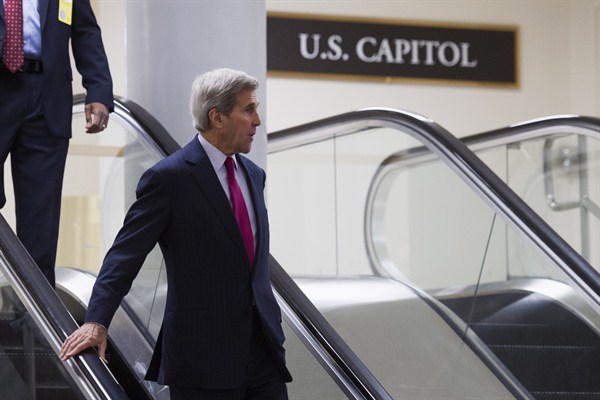After World War II, the United States had to learn how to be a global power. To do this it drew foreign policy and national security expertise from among university academics, civil service workers, senior policymakers, private sector specialists, some influential members of Congress and journalists from major national media. After a few years of debate, the foundational “big idea” for America’s Cold War strategy came from George Kennan, a career State Department official and a top expert on the Soviet Union and Russian history. Kennan argued that rather than bear the costs and risks of direct confrontation with Moscow, the United States should contain the Soviet Union until the inherent flaws of the communist system led to its inevitable collapse.
While Kennan focused on containing the Soviets in Europe using political and economic power, his strategic framework was eventually expanded to other regions and took on a military dimension. At every step, refinements to containment were debated within the community of foreign policy experts. These discussions unfolded in major national newspapers, magazines and journals; in the congressional committees that dealt with foreign policy and defense; and in elite organizations like the Council on Foreign Relations.
There were differences, often vociferous ones, between hardliners and those who sought compromise, right and left, Republicans and Democrats, but foreign policy and defense experts of both sides ultimately were part of the same community. Expertise was the ticket to influence, as the public followed the lead of experts they trusted. There were sometimes intense partisan disagreements, but when dealing with America’s most serious adversaries and challenges, even political opponents recognized that ultimately they had to stand behind the president. Eventually debate had to subside and all sides cooperate against the nation’s enemies.

